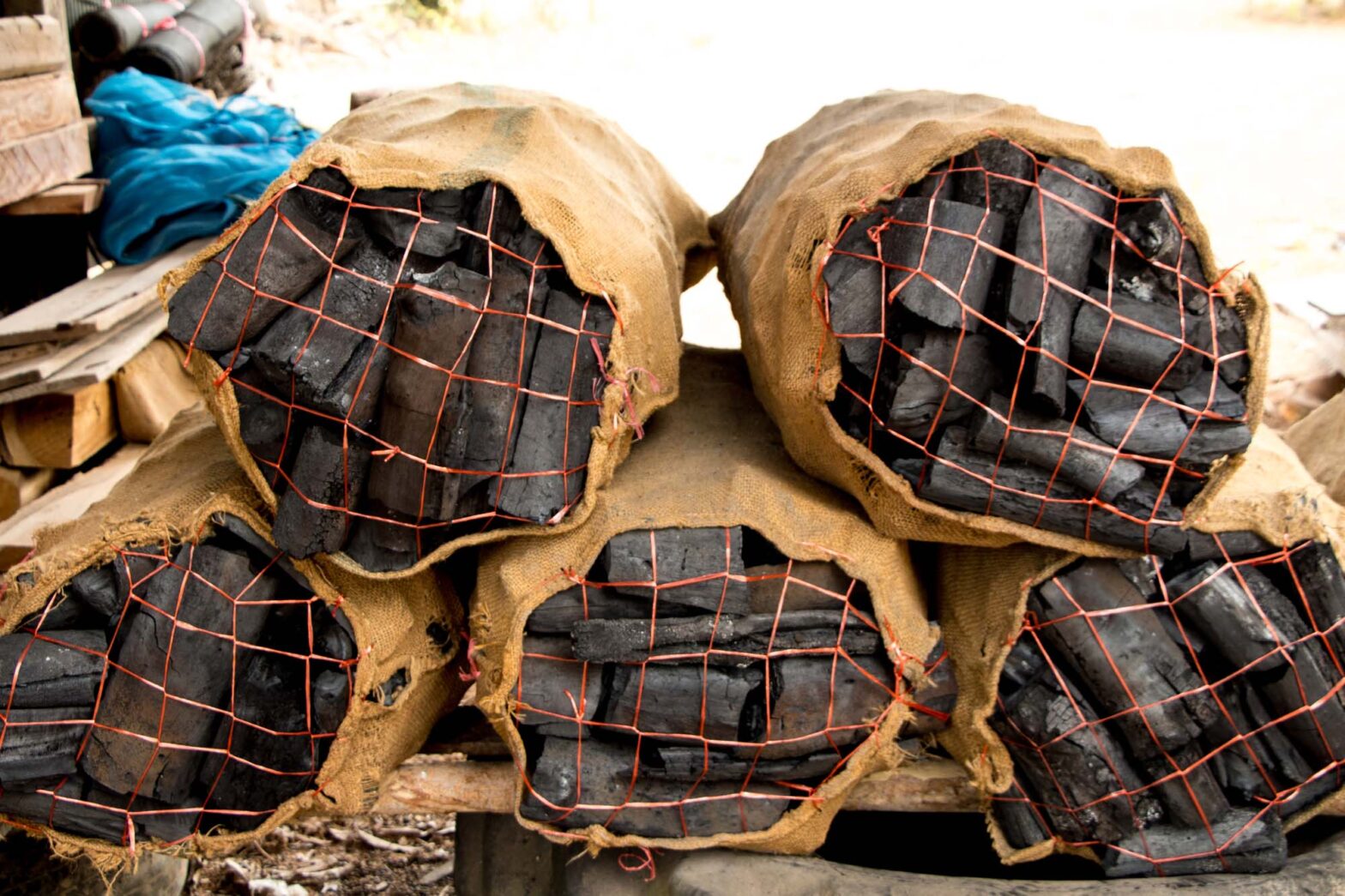After cracking open a brand new bag of briquettes, you’ve just finished your cooking. And whether you plan to cook again soon or not for a while, proper storage of the rest of your new briquettes is essential.
After all, the last thing you want is for a nearly full or half-full bag of charcoal to become ruined due to poor storage conditions. That can definitely ruin a cookout, especially if you’re somewhere that doesn’t have a nearby store to buy more!
In this guide, we’ll show you just what you need to do to safely store your charcoal so you can be ready for future cookouts, wherever, whenever.
How to Store Charcoal at Home
The number one rule for storing charcoal is to keep it away from moisture.
Never store your charcoal outside, as it will become exposed to dew, fog, and humidity. Once this happens, your charcoal might not ignite—or worse, burn for less time than you need it, leaving you stuck in the middle of a cook.
Most bags are made using 3-ply kraft paper that have a plastic film on the inside that protects the charcoal against some humidity while keeping dust from leaking out while transporting the bag.
The best containers will usually be metal because they are more likely to be fireproof and less porous than plastic. However, the benefit of plastic is that it’s easier to clean and doesn’t rust.
Whichever type you choose, below are a few rules to remember when storing charcoal.
Keep the Charcoal Away From Sources of Water
Most charcoal you buy in stores is made from kindling and wood.
For those who’ve ever tried starting a campfire with kindling, you know the importance of making sure it’s nice and dry. The same rule applies to charcoal.
You should always keep charcoal in a dry, cool location and as far away from potential sources of moisture. That means if you happen to have a water heater or even a few jugs of water in the same location, it’s not the best choice.
Even stored water can release moisture into the atmosphere as it evaporates, slowly ruining your charcoal over time.
What to Do If the Charcoal Gets Wet
If you want to ensure your cook goes well, pick up a fresh bag of charcoal and only use that. Otherwise, if you’re willing to take on a bit of risk should your charcoal somehow becomes wet, you may be able to salvage it, but not immediately.
You’ll need to set it in the sun for a few days, provided your area is sunny with low humidity. Lay the pieces out in a single layer. Then flip them every other day to ensure they dry evenly and completely down to their core.
If you plan on using dried charcoal, it’s always best to use fresh charcoal as your starter.
Learn more: Can You Grill on Wet Charcoal?
Sealing the Charcoal Bag
Every time you’ve finished using your charcoal, roll the top of the bag tight to ensure the best possible seal on the bag.
Once you’ve sealed it, store the bag in a dry, cool, well-ventilated location, well away from any source of moisture or heat. Storing charcoal inside storage bins works best, like the ones mentioned earlier.
Picking the Proper Storage Location for Charcoal
When finding just the right spot, you want to find an area that does not receive direct sunlight, in other words, as far from windows as possible.
For many, a basement or garage is an ideal environment, and if your garage or basement isn’t naturally dry, you can always utilize a dehumidifier to help take some of the moisture out of the air.
Can You Store Charcoal Inside Your Home?
It’s perfectly safe to store charcoal inside your home—say, in a closet—as long as it’s away from any potential heat sources that could set it on fire.
However, the same isn’t true for lighter fluid. You should keep that as far away from your home as you can. In fact, invest in a charcoal chimney and stop using lighter fluid altogether.
How Long Can You Store Charcoal?
Charcoal can last indefinitely if stored under the right conditions, in a cool and dry location without humidity and moisture. Some might choose an outdoor shed, but the best location will usually be a dry basement, attic, garage, or building that’s temperature controlled.
Regular charcoal does not go bad if stored correctly. However, certain types with chemical additives, such as Kingsford Match Light, typically have a shelf life of only 1-2 years under proper storage conditions.
An open bag of charcoal can last a very long time if kept away from moisture. However, if left out in the open, such as in a shed or outdoors, it can go bad in no time.
Can Charcoal Spontaneously Combust?
There is a persistent rumor that wet charcoal has a higher risk of spontaneous combustion than dry charcoal. This myth likely started from older information concerning coal and charcoal, two different fuel sources.
Coal is a substance gathered from mining, not made of wood. Wet coal has the potential to spontaneously combust after being exposed to oxygen, beginning the oxidation process, which can produce heat.
As for the possibility of wet charcoal spontaneously combusting, that seems less likely considering that the main issue with wet charcoal is how it fails to ignite during a cook. It doesn’t make much sense for the same substance to self-ignite.
This rumor is often spread through second-hand accounts, and unfortunately, even some who work for fire departments believe this myth without any scientific evidence backing it up. It’s also possible that large quantities of wet charcoal and coal may be more susceptible to igniting.
We often see this happening in coal yards holding tons of coal. But unless you’re storing that much charcoal, chances are your modest-sized 5-10lb bag will be just fine.

